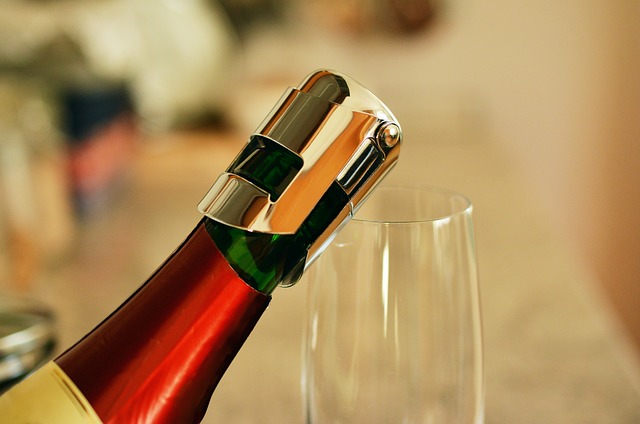Posted: Sep 08, 2017

If Champagne became shorthand for luxury and celebration, it’s entirely thanks to one woman: Barbe Nicole Clicquot Ponsardin. So why are there so few women in the industry?
As is true with much of the broader world of wine, women in France’s Champagne region are underrepresented both in production and leadership positions. The number of female winemakers can be counted on two hands (out of a total of 5,000), and there is a startling lack of diversity. While that may not be surprising given the pervasive narrative around women being physically too weak to work in the vines, the cuveries being too dangerous for them and the business being better managed by men, it is a woman, in fact, who transformed the industry. If Champagne became shorthand for luxury and celebration, it’s entirely thanks to the business acumen of Barbe-Nicole Clicquot Ponsardin, commonly referred to as “La Veuve (widow) Clicquot.” Not only did she invent the process of remuage (riddling), but she also turned the small, fledgling business she took over after her husband’s 1805 death into a global empire. In her book The Widow Clicquot, Tilar J. Mazzeo writes, “Barbe-Nicole quietly defied the expectations her culture had about what women were and what they were capable of achieving.”
Having paved the way for the next generations of iconic women in Champagne, from Lily Bollinger to Mathilde-Emile Laurent-Perrier, Barbe-Nicole continues to be mythologized. But why aren’t there more women in the industry to help combat persistent clichés and macho attitudes and inspire future generations? Anne Malassagne, the fourth generation co-owner of AR Lenoble Champagne, an independent and family-owned producer, and Maggie Henriquez, CEO of Krug, are among the women in a year-old collective called La Transmission who hope to serve as the next wave of champions for women across the region.
"Even in 2017, few of the most senior management-level roles in Champagne are currently filled by women," said Malassagne. “Women are in strong numbers in university and specialized wine programs and perform better than men, yet they’re hardly visible ten years down the road. So many women leave to have kids and get eclipsed by men in salary and responsibility. It really is difficult to have a family.” That will only change, she added, if women who know the ins-and-outs of the business and band together to ensure their knowledge is passed on as guidance.
“It wasn’t until I arrived in France many years ago that I saw that machismo was a structural issue,” explained Venezuela-born Henriquez. “Women are seen as emotional, but it is rationality that is valued most in leadership, a characteristic more often associated with men. You see lots of women in Champagne working in HR, marketing or communications, but the question is: how can we help them evolve to top positions?”
Working alongside Henriquez and Malassagne at La Transmission are other female figures in the region of various ages and positions, like Vitalie Taittinger, Alice Paillard, and Floriane Eznak, each dedicated to upholding the values that unite them: pride in the work, respect for the land, the grape and the winemaker; a commitment to celebrating the appellation and the importance of educating younger generations. They may not have the firm answer to Henriquez’s question, but it begins with education and support.
Though the women represent different Champagne houses, brand competition is left firmly at the door. “We’re focused on creating and promoting a more modern image of Champagne,” said Malassagne, who added that each of the ten women are decision-makers. “There are no egos or power trips, and we don’t get together to bemoan amongst ourselves how challenging things are for women but rather discuss the future realistically; we want to be uplifting.”
So far, the group is on track to organize two major events a year geared toward sommelières, restaurant owners, winemakers, brokers, marketing managers and women in various other roles from France and abroad, to talk and learn about the business through workshops and special tastings. Recently, La Transmission hosted several young English sommelières, taking them to visit six vineyards run by women in the group and organizing a food and Champagne pairing with ten important vintages. Next year, they hope to run a panel discussion open to the public at the Foire aux Vins, a wine fair, organized by Terres de Vin.
With 31 years in the wine and spirits business, Henriquez sees the group not only as a personal opportunity to guide but as a collective responsibility to shape the future. “We can change the perceptions around Champagne and modernize the business,” she says, “and it’s women who need to be—and will be—part of that evolution.”
By Lindsey Tramuta
September 6, 2017
Source: FoodandWine.com
Go-Wine's mission is to organize food and beverage information and make it universally accessible and beneficial. These are the benefits of sharing your article in Go-Wine.com


The Wine Thief Bistro & Specialty Wines is a locally owned small business in downtown Frankfort, IL offering world class wines in a relaxed, casual gathering spot for friends and family. Offering world class virtual tastings and touchless carryout.
https://www.twtwineclub.com/aboutus
Go-Wine 25 Great Wineries in US selection prioritizes quality, value and availability.
www.go-wine.com/great-wineries-in-america
Tasting wine is a nice experience, but visiting the places in which wine is made is a magic moment. Available in New York City for touchless pickup.